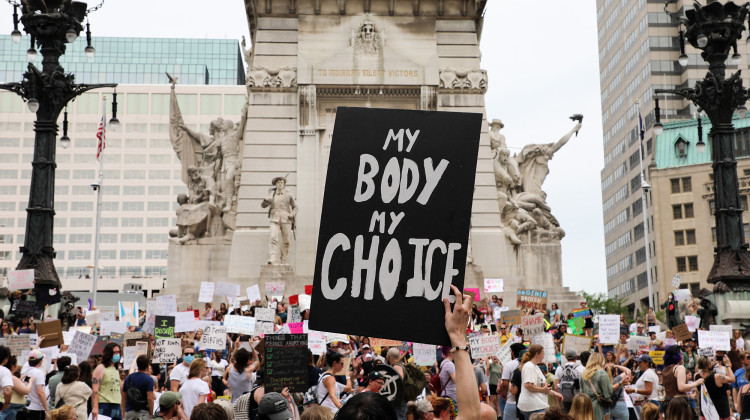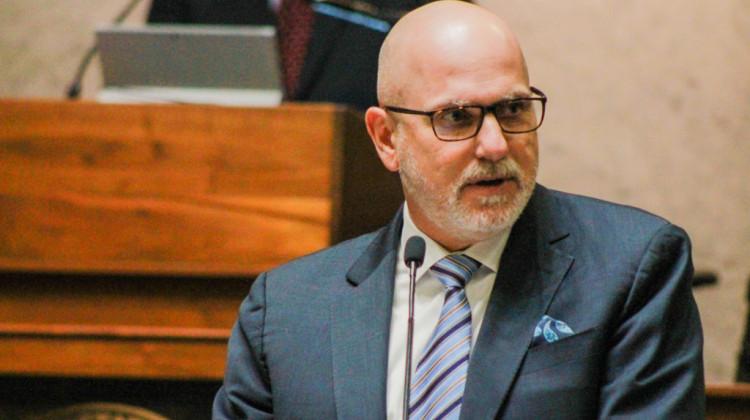
Indiana’s abortion ban contains language that allows an exception for the life of the pregnant person.
Eric Weddle / WFYIIndiana’s abortion ban contains language that allows an exception for the life of the pregnant person. One listener was curious about the specific provisions this carried.
Indianapolis OB-GYN Dr. Caroline Rouse said the ban defines a serious health condition – which is required under the ban to perform an abortion – as one that "increases the risk of death or a serious risk of substantial and irreversible physical damage to a major bodily function."
Rouse said she feels this definition is too vague.
“I think one thing that can be challenging for people who may not be in medicine, or as familiar with pregnancies and complications related to that is that there is no definitive list of conditions that would meet that definition," she said.
She said that conditions may affect different people in different ways – making it hard to determine what could be allowed under this exception.
Rouse said it may be harder for doctors to make decisions knowing others could pursue legal action against these decisions later on.
“Someone later down the line could second guess your assessment about a patient's clinical condition," Rouse said. "And [they could] say: ‘well, actually, we don't think that was life-threatening enough to meet this exclusion criterion.'"
Jennifer Drobac is a law professor at Indiana University. She said this kind of ambiguous criteria may cause doctors to be more cautious when providing abortions.
“Those people who are potentially at legal risk are going to be the ones deciding whether or not to proceed with an abortion," she said. "And so what that does is it has a chilling effect on the medical profession”
Rouse said this ban is also tricky as it leaves those with pre-existing or high-risk pregnancy conditions at a disadvantage.
"They may only want to do that [pursue pregnancy] knowing that if something devastating does happen with their health in the early part of pregnancy as a result of pre-existing conditions, they would want to be able to have the option to end the pregnancy," Rouse said.
Join the conversation and sign up for the Indiana Two-Way. Text "Indiana" to 73224. Your comments and questions in response to our weekly text help us find the answers you need on statewide issues.
Drobac agreed and said this vague language may make doctors wait longer to perform abortions — leaving patients in potentially unsafe situations.
"How long do you wait until the doctor can proceed?" Drobac asked. "But the dilemma there is: the longer you wait, and the riskier it is, the riskier it is to have an abortion. Abortions are much safer when they are performed early in the pregnancy."
For now, abortion will remain legal in Indiana through at least the end of the year.
Contact reporter Violet at vcomberwilen@wfyi.org or follow her on Twitter at @ComberWilen.
 DONATE
DONATE







 Support WFYI. We can't do it without you.
Support WFYI. We can't do it without you.